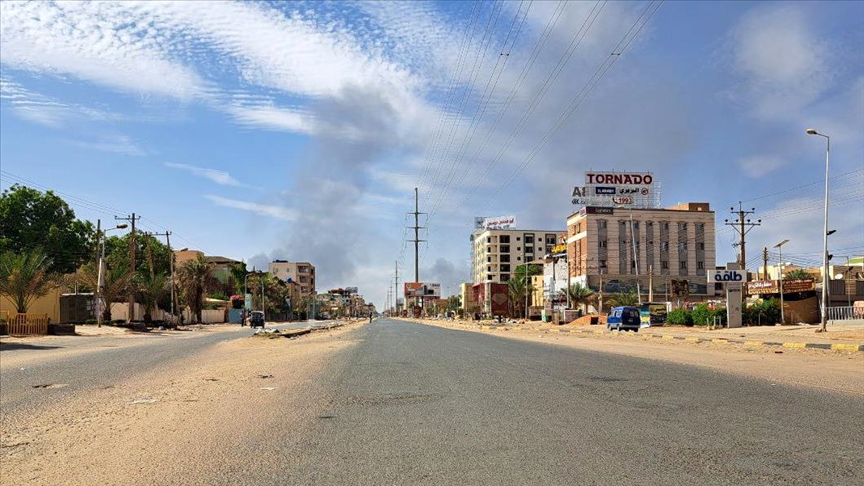 Khartoum-Al-Yurae- (Anatolia)- Clashes between the Sudanese army and the Rapid Support Forces expanded in the capital Khartoum on Sunday, as the city of El Geneina, the center of West Darfur state (west), turned into a ghost town due to the ongoing fighting, according to witnesses and a medical syndicate.
Khartoum-Al-Yurae- (Anatolia)- Clashes between the Sudanese army and the Rapid Support Forces expanded in the capital Khartoum on Sunday, as the city of El Geneina, the center of West Darfur state (west), turned into a ghost town due to the ongoing fighting, according to witnesses and a medical syndicate.
In Khartoum, fierce clashes with heavy and light weapons were renewed overflights and bombardment by military aircraft, witnesses told Anadolu Agency.
The witnesses added that the military aircraft bombed gatherings of the “rapid support” on Al-Ghaba Street in central Khartoum, Omdurman, west of the capital, and large parts of the city of Bahri, north of the capital.
Clashes also erupted in the neighborhoods of Muzdalifah, Maygoma and “One Street” in the Haj Youssef area, east of the capital, in addition to areas north of Bahri, specifically the neighborhoods of Halfaya, Kadro and Samrab.
Witnesses also reported clashes in the vicinity of the Yarmouk ammunition factory, the Sports City, and the Al-Azhari and Salama neighborhoods, south of the capital.
The current escalation comes a day after a 24-hour truce proposed by the Saudi-US mediation to alleviate the population’s humanitarian suffering, as part of a series of truces since the start of fighting between the army and the Rapid Support in mid-April.
According to the Sudanese Doctors’ Syndicate (non-governmental), through a statement on Sunday, the city of El Geneina, the center of West Darfur state on the border with Chad, has been witnessing since April 20 successive attacks that left hundreds of people dead and injured and thousands displaced from their homes.
The union reported “the collapse of the health system and civil services, the departure of humanitarian organizations from service and their departure from the state, turning El Geneina into a ghost town with nothing but the smell of death,” according to the statement.
Eyewitnesses told Anadolu correspondent that the city of El-Obeid, the center of North Kordofan state (south), suffers from difficult humanitarian conditions following the siege imposed on it by the Rapid Support Forces.
Witnesses explained that the city suffers from permanent power and water cuts, food shortages, and an acute shortage of medical staff and medicine supplies at the city’s hospital, where patients are lying on the ground.
Since May, Saudi Arabia and the United States have been sponsoring direct talks between the two sides in Jeddah in an effort to reach a permanent ceasefire in preparation for a return to the negotiating table to resolve differences through dialogue.
Clashes between the army led by Abdel Fattah al-Burhan and the Rapid Support Forces led by Mohamed Hamdan Daglo (Hemedti) left hundreds dead and thousands injured among civilians, in addition to a new wave of displacement and asylum in one of the world’s poorest countries.

